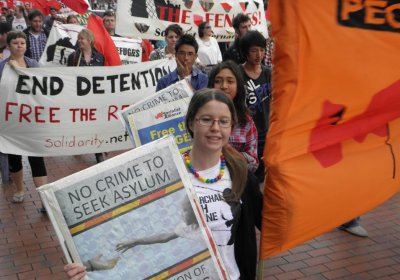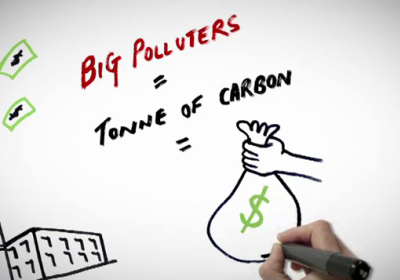The Cocos (Keeling) Islands is a tiny group of coral atolls in the Indian Ocean 2800 kilometres north-west of Perth and 900 kilometres from Java. It has a population of about 600.
These islands were nominally a British territory between 1858 and 1955, when they were transferred by a British act of parliament to Australia. Yet for the next 17 years, the Australian government allowed the islands to operate as a private fiefdom of the Clunies-Ross family — just as the British had for 100 years before then.
Australia
Global opposition to unconventional gas mining is growing fast. Impacts on water, food, health and the environment, associated seismic risks and climate change contribution are just some of the many reasons.
Meanwhile, the industry is growing. Its potential growth in Australia is enormous, with large known reserves and billions to be made.
This article first appeared in Tracker magazine on March 19.
* * *
Aboriginal leaders in the Northern Territory have issued a strong warning that the Australian government’s new land grab in the form of the proposed 10-year extension of the intervention will send many communities into a dangerous downward spiral with still more death and misery.
In several places around world, students are rising up, fighting for their rights and demanding real change.
In Quebec, university students have mobilised in record numbers to oppose attacks on their education. The government of Premier Jean Charest plans to introduce a massive 75% hike in tertiary education fees — on the back of fee increases of C$100 a year for the past five years.
In response, 200,000 students and supporters marched to oppose the cuts on March 22. By March 29, about 300,000 students had gone on strike, boycotting their classes to protest the fee hikes.
Rallies were held in Sydney and Melbourne on March 30 in solidarity with the Global March to Jerusalem that will take place on the historic Palestine Land Day 2012. This marks the events of March 1976, after the Israeli authorities confiscated thousands of dunums of private and public land in majority Palestinian areas.
The Australian system of mandatory detention for refugees is not, contrary to official government rhetoric, based on a policy of security. Rather, it is based on an age-old policy of demeaning and scapegoating foreigners.
Under international law, Australia is obliged to respect the right of refugees and settle them if they face genuine persecution, regardless of how they arrive in Australia or whether they have identification. But the policy of mandatory detention for asylum seekers subverts these rights.
When you are the Only Democracy in the Middle EastTM you don’t need to worry about petty little things such as human rights. And so ABC Online reported on March 27 that Israel has severed all ties with the United Nations Human Rights Council (UNHRC).
The final outrage that forced Israel to cut ties was a UNHRC vote in favour of investigating whether illegal Israeli settlements in the Palestinian West Bank were, in fact, infringing the rights of Palestinians.
A new report by an international research body has called for detention of refugee children to be outlawed and for all countries to “ensure the rights and liberty” of children affected by immigration detention.
Australian immigration detention figures released on March 25 showed that even after the federal government “completes” transferring children to “community detention”, hundreds of underage asylum seekers will stay in immigration detention centres.
On the afternoon of March 30, Friends of the Earth campaigner Cam Walker said on Twitter: “This has been the week from hell for climate change politics in Vic. There's still a few working hours, maybe a nuke power plant is next?”
Climate targets, standards abandoned
Poultry industry union delegates in the National Union of Workers (NUW) and supporters met on March 27 to launch a report outlining the basis for the union’s “Better Jobs 4 Better Chicken” campaign.
Late last year, NUW members at Baiada Poultry took strike action over conditions of employment and wages, citing widespread use of cash-in-hand work at rates well below the minimum wage.
Phil Harrington is an economist, climate change policy analyst, consultant and activist with Climate Action Hobart. Green Left Weekly’s Susan Austin asked him about his views on the federal government’s carbon pricing package and how to respond to it.
What do you think of the carbon pricing scheme that is being introduced?
It’s way too little, way too late. It is designed to give the appearance of action and is being used by the government to justify the position “we’ve fixed that now” — but in fact nothing is fixed.
The campaign to protect Western Australia's Kimberley region from gas extraction will be the topic of an April 19 meeting in Sydney.
WA Greens Senator Rachel Siewert, The Wilderness Society national director Lyndon Schneiders and Beyond Zero Emissions' Geoff Cameron will address the public forum, Saving the Kimberley: Our Land or Gasland?
- Previous page
- Page 752
- Next page










